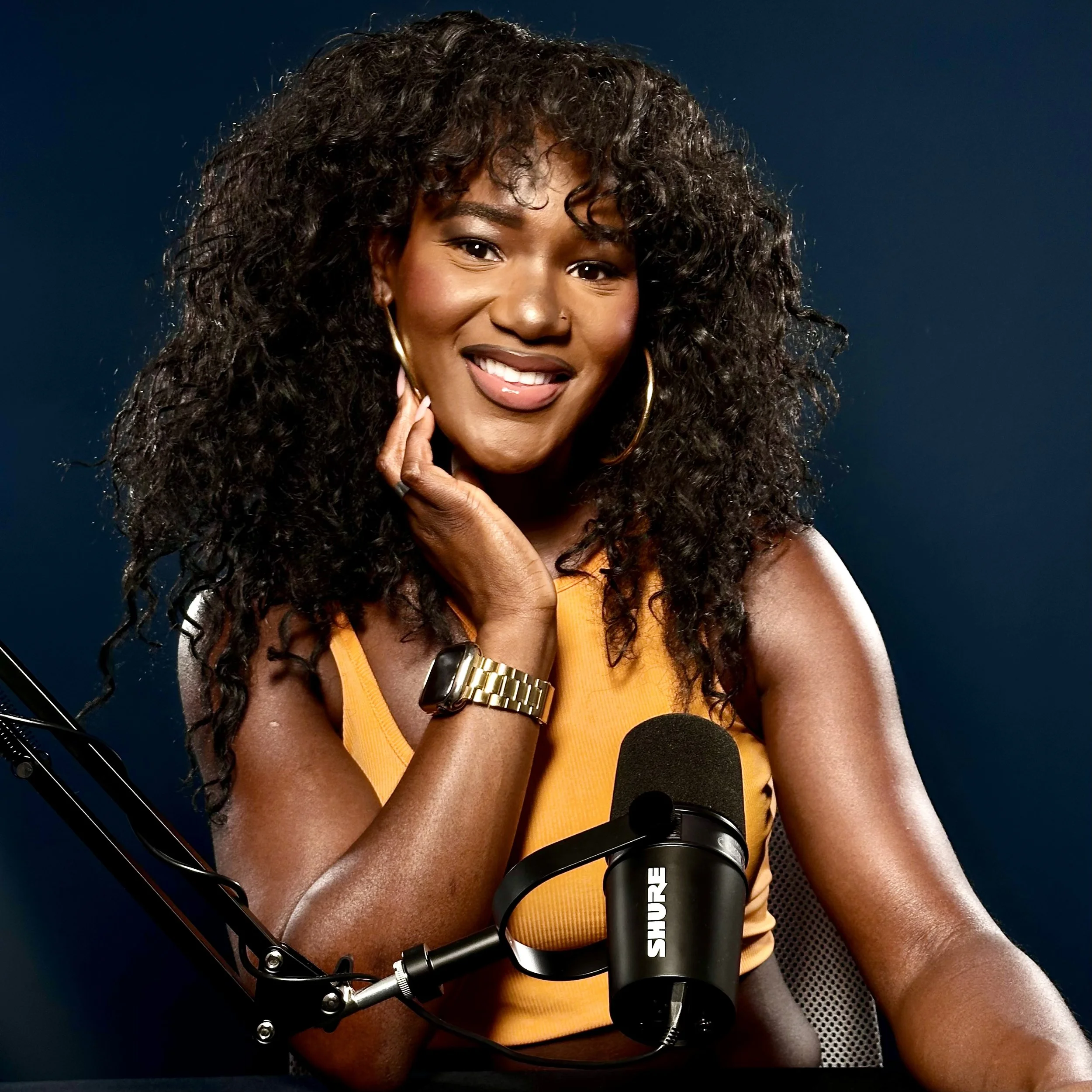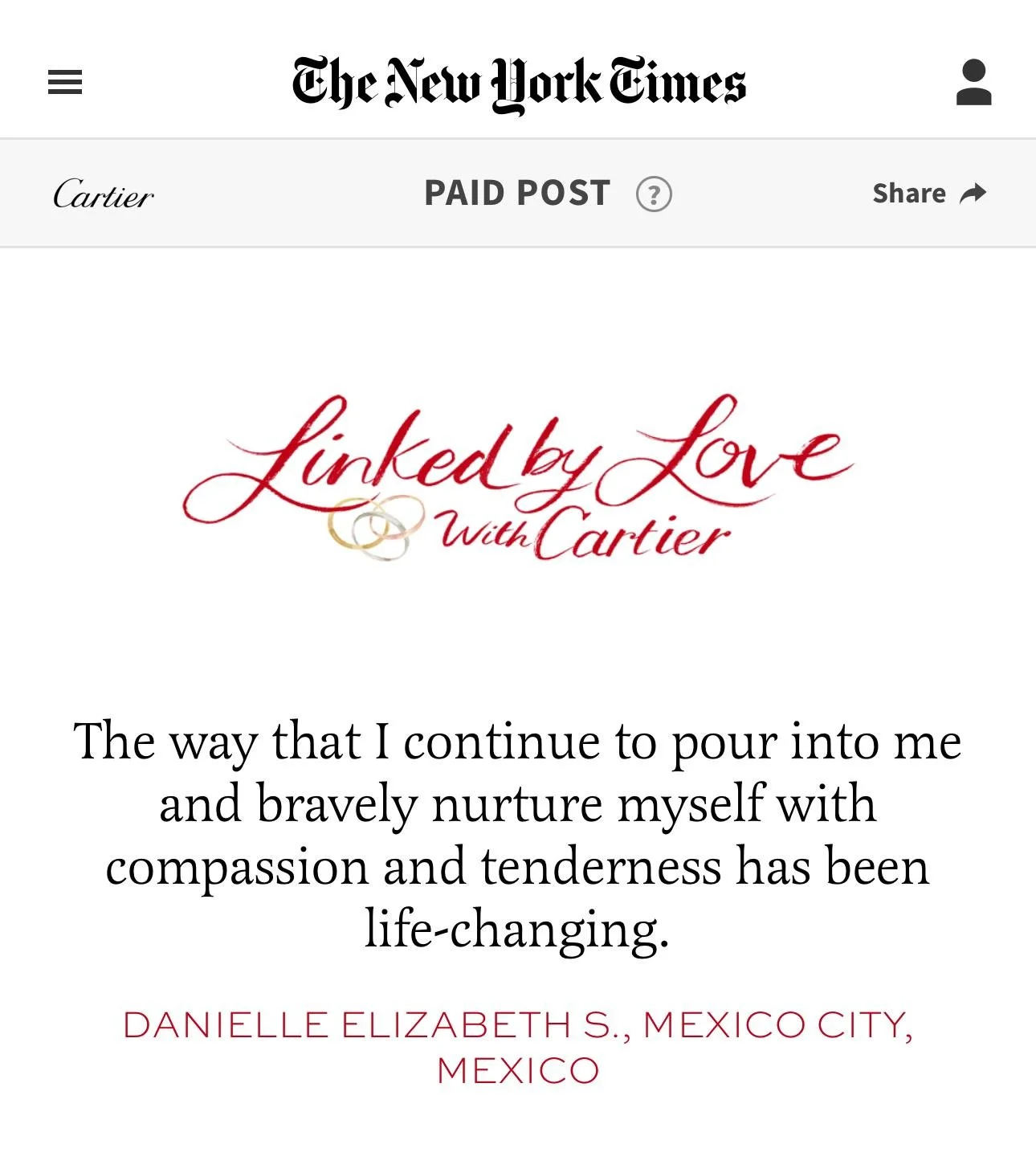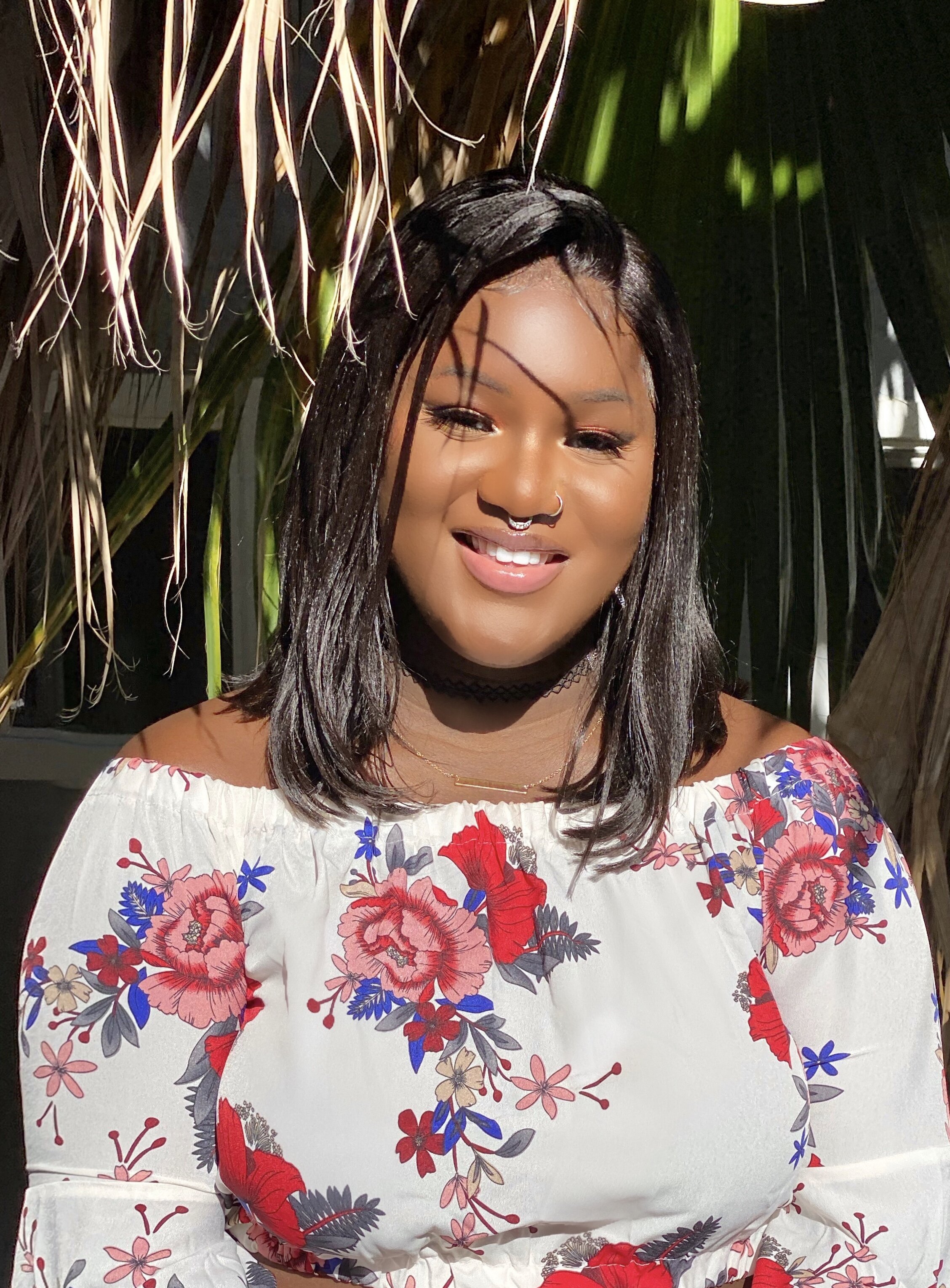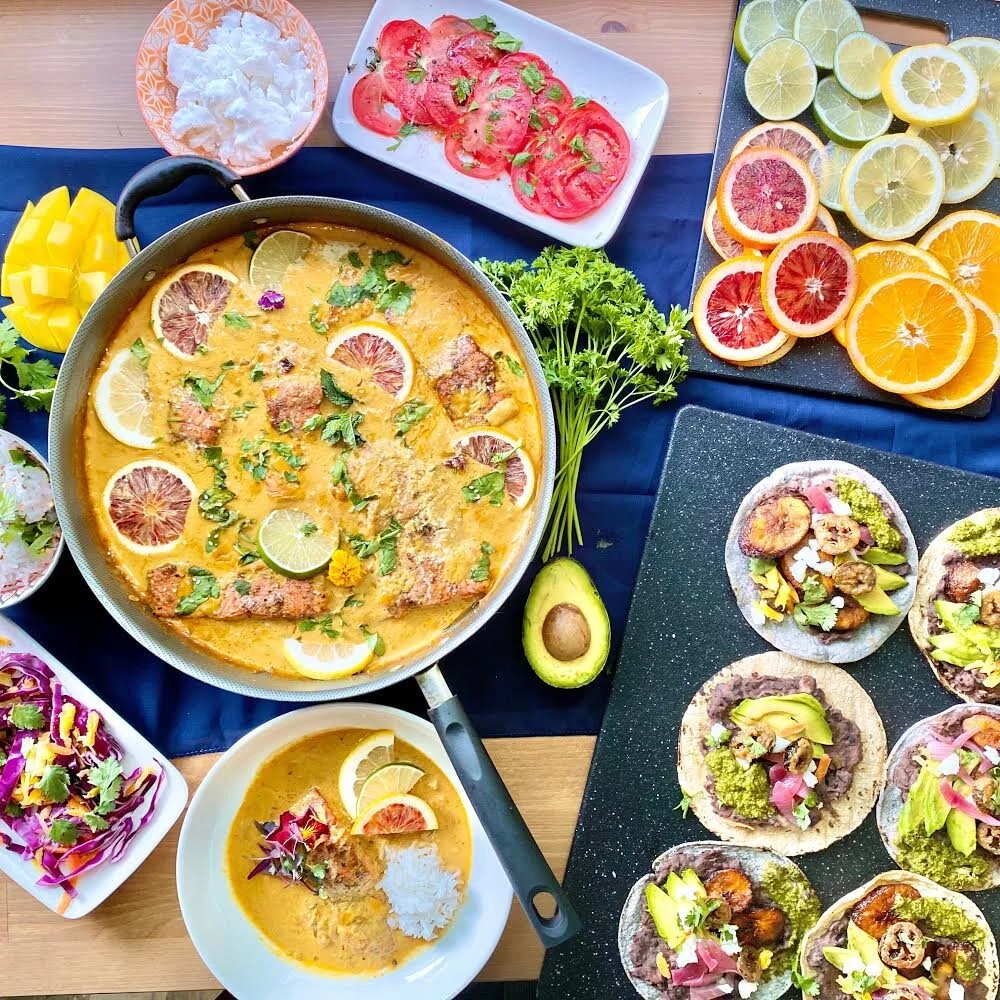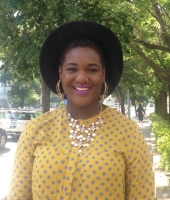A Honest Reflection of Our Need For Brutal Softness
By Danielle Elizabeth Stevens,
Orginally Posted on This Bridge Called Our Health
On the evening of July 6, 2024, a desperate call for help turned into a tragic execution in Springfield, Illinois. Sonya Massey dialed 911 to report suspicious activity, fearing for her physical well-being and in need of mental and emotional support. Alone and terrified after a potential intruder compromised her safety, Sonya’s plea for help—”please don’t hurt me”—reflected her deep vulnerability and awareness of the inherent danger posed by police officers. Instead of receiving the protection and care she deeply needed and deserved, Sonya was swiftly and gruesomely murdered by then Sangamon County deputy Sean Grayson. Grayson, a trigger-happy, gun-toting disciple of white supremacy with a history of misconduct, drug abuse, and erratic behavior, found perverse satisfaction in his act, proudly announcing it as a ‘head-shot’ when asked by a sheriff if Sonya survived his senseless and unwarranted attack. His callousness was further highlighted by his dismissive demeanor, derogatory remarks about Sonya’s mental health, and his failure to activate his body camera until after the murder; underscoring his intention to keep the incident classified, while maintaining a false pretense that her demise was self-inflicted. Sonya Massey’s brutal killing is part of a larger pattern of police-inflicted gun violence that has plagued Black communities for centuries — and sadly, is on the rise.
After several attempts were made to dissuade and mislead Sonya Massey’s family, they finally witnessed the harrowing and disturbing truth of her last moments, captured via bodycam of the other officer. The video was immediately disseminated far and wide (some sites even posted it on auto-play), sending shockwaves of righteous outrage, noble anger, and deeply valid rage throughout the country. This was also met with urgent calls to action to end police brutality. Although the surge of social media has been an effective tool for expanding access to information, and mobilizing our communities, it has also meant that Black people have been intimately exposed to ceaseless images and videos of our bodies being brutalized, murdered, and relegated to objects hunted by a system of white supremacy.
The widespread circulation of the video capturing Sonya Massey’s tragic death underscores the urgent need for systemic change, and is part of a long, brutal history of racial violence in America.. This modern spectacle of anti-Black violence mirrors the historical atrocities of Jim Crow-era public spectacle lynchings. During these gatherings, titillated white people, frothing and foaming at the mouth to enjoy the next installment of public Black murder, would gather with their families, children, and communities, complete with vendors and music to cheer on and celebrate the gruesome torture and public mutilation of a Black person being hung, beaten, and burned alive. The gleeful spectators often sent postcards back home, relics of celebration to archive this severely dehumanizing brutality.
Whew…
Let’s take a moment.
To pause…
And reflect. I know that was a lot to read. Take a deep breath and read this next part slowly, Embracing each sentence and allowing the words to resonate deeply. Notice how you feel as they land…
What is arising within you? Check in with yourself for a moment. *Inhale* *Exhale….Breathe.
Connect to your surroundings. Attune with yourself as you breathe in… connect deeply to your body as you breathe out. You may consider allowing your eyes to take rest; closing them gently, if even just for a brief moment.
Place your hand over your heart to remind yourself that you’re still alive, that your heart is still beating with purpose and resilience. Was your breathing perhaps a bit shallow? Was your heart pounding a bit stronger?
This is all valid. Human. Glorious.
How do you feel now?
As we process this, it’s essential to understand how deeply these incidents impact us psychologically and emotionally, particularly within the Black community.
You are welcome here, to feel what may be anger, sorrow, anguish, and heartache as you reflect on this painful part of this country’s history, repercussive patterns of which are still very alive today.
Embrace this moment of stillness to acknowledge, honor, connect with, and create room for how deeply you may be impacted by just reading what was written. And this is without any visual context. Our deep feelings and heightened sensitivity illuminate the pervasive harm such violence & its’ witnessing inflict on the mental and emotional well-being of the Black community.
Our collective response to the video detailing Sonya Massey’s murder can provide insights into how we process pain as a community. While the scale of state-sanctioned violence and criminalization of Black people in the U.S. — a nation built on enslavement, colonialism, and genocide — is immense, the conversation often overlooks the deep psychological harm inflicted when Black people bear witness to ourselves being killed. Though we have decades of research to underscore the inherent danger of daring to exist as a Black person, what is often overlooked is the emotional woundedness that Black people experience in accompaniment with these deep injustices. Acknowledging this dis-ease and tending to the mental and emotional anguish with which we live is essential to not only understanding the broader contextual role of violence in our society, but also highlights our urgent need to respond with radical compassion and deep care.
It is of deep importance to understand the mental and emotional health impacts and sociopolitical implications of this type of imagery becoming a hallmark of the cultural zeitgeist. Even from those with the most well-meaning of intentions, engaging in the widespread circulation of media that depicts Black people being murdered and abused can contribute to the insidious normalization of this type of violence . It desensitizes, haunts, and overwhelms us, leading to a state of shock and exhaustion. For those not directly impacted, sharing the video may activate those already traumatized from loss, grief, and turmoil—the grim realities of surviving a horrifically murderous white supremacist state. Demonstrating solidarity with victims and their families does not necessitate consuming and sharing violent imagery. We can honor their lives, challenge structural injustice, and demand accountability without contributing to the cycle of trauma.
Often, when we mobilize in response to publicized state-sanctioned violence, we do so from a space of rage and anger, without fully acknowledging our pain. For those of us working at the front lines of change, who are in deep and direct interplay with systems of oppression and institutionalized violence every single day, we may not realize how desensitized we’ve become to finding home and normalcy in a heightened state of anger, chronic stress, and nervous system dysregulation. Although our anger is valid and understandable, it’s crucial to locate the skillful and generative utility of this energy so that it does not consume, misguide, terrorize, nor become us. Because we are much more than who we are when we are angry.
As an educator & trainer who has worked in service of social justice for 14 years — who found shaky foundations in my making home of my anger — I understand intimately the limitations and ill-effects of allowing my anger to become me, and me, it. I began my career in grassroots community organizing by leading my first protest at 13 years old.
I remember being motivated by my deep anger toward social injustice, unaware that this anger was becoming my primary identity. This unconscious identity marker carried on into my early adulthood and manifested as chronic stress, debilitating anxiety, and even minor dental irregularities from years of clenching my jaw and grinding my teeth. I became desensitized to my own feelings, moving incongruously with the rest, tenderness, and care that I actually needed. I was in perpetual anger, at war against this system, not knowing that I was truly at war with myself, and, unconsciously yet harmfully – with those around me to. My rage — tender & sensitive, sore and wounded, scorchingly hot to the touch and in need of salve — was seeping into many of my relationships. I knew not how to discern. I knew intimately how to use these tools for dismantling and destroying a broken system. But was I using them to dismantle and destroy relationships too? Did I know how to use them to actually build something different — to create anew?
After spending years quieting the noise to become a brave and compassionate mother to my bruised inner child, making radical shifts in my life to fully center my health and wellbeing, addressing the harm that my woundedness caused myself and others, and traveling the world creating brave and vulnerable spaces for marginalized communities to find their healing and restoration, I uncovered tremendous insight into addressing deep personal and societal change both macro & microcosmically; from the inside out. I learned that the most sustainable and authentic way to negotiate the relationship between dismantling systems of oppression and creating new structures rooted and liberating and freedom is by truly beginning from within and slowly working our way out. I’ve learned that if we aren’t conscious, careful, and skillful, then resistance can become a double-edged sword.
In a complex social system which depends on our disorientation to uphold oppression, it is imperative that we decolonize our minds and actively our agency to reorient to right relationship with this social structure, our community, and most importantly, ourselves. Resistance in its unrefined state might cause us to reject love that’s meant for us; may cause us to distrust easily; may cause us to be critical of ourselves and each other; to dispose of and be harsh toward anything we see as flawed, even ourselves. Resistance can cause us to treat ourselves and each other inhumanely and without the compassion and grace we deserve. It is vital to offer ourselves and our nervous systems the reprieve & comfort that is deeply needed to mitigate the effects of this constant state of alertness. We need REST.
It’s time we breathe life into how we experience this flawed system and embrace the self-determination to choose how we live within, without, and beyond its conditioning. It is critical that we trust our capacity and worthiness to make a legacy of intergenerational and inherited healing rather than reinforcing cycles of trauma & unintended self-neglect, both byproducts of white supremacy. (Insert Willie lunch) We don’t have to let the pain inflicted by white supremacy dictate how we treat ourselves and our families. There are other ways to live, other ways of being, and new worlds to create.
To re-center healing during instances of police terror and state-sanctioned violence, we must allow ourselves to be tender and open to the glorious nature of our grief; a source of holy & righteous wisdom, a compass that can bravely lead us toward our pain and discomfort, help us navigate sites of heartache and loss, and ultimately identify the care we need to tend to our deepest sorrows. In a world that conditions us to expect harsh and unyielding cruelty, embodying tenderness, compassion, and softness in the face of adversity can uncover the rich, decadent, and life-affirming powers that vulnerability, empathy, and love can offer as tools for resilience and healing; resistance and becoming.
Suffering and misery are inevitable and natural occurrences of life. They are part of the yin and yang, the ebbs and flow, the joy and sorrow, and the peculiar paradox of life (and death). Creating a safe space within to welcome our grief with tenderness and care enables us to approach the richness, totality, and dimension of our lives with deepened authenticity, sensitivity, empathy, clarity, and compassion.
In a county built on the exploitation and eradication of Black life, our resistance can be found in embodying our inherent and infinite worthiness of compassion, ease, & love. How do we restore our humanity when we encounter this type of media such as the video that saw the last moments of Sonya Massey’s precious life? By recognizing that beyond social media, there are living, breathing human beings in deep vulnerability and anguish on the other side of the screen, ourselves included. Before watching or resharing unconsciously, without mindful reflection, consider the familiar pain we all feel learning of Sonya Massey’s tragic fate — a lump in our throat, a knot in our stomach, a fire in our belly, a pain in our chest. Behind the retweets and shares are our tender hearts and minds and those of our beloved community: a parent whose only child was a recent victim of gun violence just weeks before their 18th birthday ; a lonely sibling whose last memory of their elder sibling was saying, “I love you,” before they left the house and sadly, never returned; a young Black girl, brave and bruised by the pain of what she just watched, who may need a warm embrace or a reminder that she is loved and protected. How can we restore our connection, faith, and humanity during times that call for deepened intimacy and connection? How can we reimagine our response to these horrific instances of public execution without begetting more violence toward our psyche? Here are a few suggestions for recentering care when fear has arisen:
1. Reconsider Watching and Sharing a Viral Violent Video: If you’d like to stay informed, raise awareness and/ or galvanize your community, focus on sharing factual information & ways go other support rather than consuming and circulating violent imagery.
2. Pause & Respect Those With Lived Experience: Akin to a reflex, we have been conditioned to automate the act of sharing, re-tweeting, and posting content that come across our screen. Without taking a moment for mindful reflection, we’re less considerate of the impact of circulation on those who have experienced racialized, anti-Black, state-sanctioned violence. Take a moment to pause and consider if there are other ways to raise awareness. As a Black American person impacted by incarceration, police violence, and terror, I urge you to reconsider sharing these types of videos.
3. OFFER Direct Support To The Black Women in Your Life: Engage with empathy and offer support proactively. Reach out to your loved ones beyond “hope all is well!” or “let me know if you need anything!” Statements like these can feel passive and unintentionally dismissive as they lack an invitation to engage. They furthermore place the onus on the person who is in grief to engage in labor, when likely their capacity is already decreased. Reflect thoughtfully about your capacity to provide proactive support. Examples Include:
- “Hey, I heard what happened. I’m sorry, I love you. Can I buy you a meal today?”
- “Can I come over and give you a hug? I'm here for you”
- “I brought you some flowers; can I drop them off?”
- “I’m doing a grocery run; is there anything I can bring you?”
- “I know your favorite movie is ‘Hairspray’, would you like to watch it together week? I love you.”
It can feel vulnerable & isolating for the precious precarity & sacred sanctity of your safety & finitude be objectified and reduced to a mere topic on the evening news. These specific action-oriented intentions can offer connection, genuine care, and a soothing salve to an otherwise lonely heart, allowing for expanded opportunities for intimacy, care, & love.
4. If you are in a leadership position at a company or organization: Give your Black employees the day off: PROACTIVELY offer a day of care to your treasured and beloved Black employees who are processing yet another instance of publicized anti-Black murder. This is particularly true for those who work in the social media space, who have likely been bombarded with headlines, videos, images, and a national soundboard of varying opinions and emotions which are likely overwhelming, distracting, stressful, and emotional. Support their emotional wellbeing by allowing a day to rest, care, and grieve; outside of the confines and expectations of capitalist production.
5. Envision an Alternative Outcome: In order to reconnect yourself to possibility and compassion, reimagine the possibilities of what could have happened the night of Sonya Massey’s death. What should have happened if everything went right that night? What would you have done had you been there? How would you have supported or advocated for our fallen sibling? Watching the video can make us feel hopeless, terrified, and render us confused, shocked, stuck, and immobile; severing ties to our creativity and capacity for possibility and change. Police brutality is a public health crisis and international pandemic particularly plaguing Black communities. It is important that we are honest about this present reality and are reminded of opportunities to continue learning how to respond & protect our community in the future. Activating our capacity to reflect on the past and imagine figure possibilities can be a powerful tool to keep us grounded in the generative nature of solution-oriented action, creativity, and self-determination, rather than the the depleting focus on the actions of white supremacists, which is futile (as we can’t control them) and harmful, as it may cause us to internalize the lack of humanity they’ve projected onto us.
6. Pause. Breathe. Cry. Reflect. And give gratitude: While death is an inevitable, universal, and unavoidable experience that we will all go through one day, Black individuals face disproportionate, violent, and preventable deaths. We must always acknowledge the reality that each moment of our lives are of profound significance. This lifetime passes swiftly; We must take gracious care to not squander this precious and finite life experience. Take beautiful care of the people around you, of this sacred planet, and of your fleeting existence. Let it motivate you to attune to what is most important to you. Love and live deeply, wildly, bravely, kindly, fearlessly, boldly, and with both tenderness and fervency. Be brutally soft and radically compassionate with yourself, your loved ones, and this planet we call home. Soften your heart and embrace forgiveness and understanding for those who hurt you and those you have hurt. Dare to remember how sacred you are, how special your every breath is, and how precious and significant you are. You are a glorious gemstone in the beautiful mosaic of this collective humanity that we still get to embody. You belong to each and every one of us; and each and every one of us — to you. Thank this generous earth and the glorious sunrise for inviting you back home to experience another day.
Being present with our pain transforms it, creating space for love and joy, deepened resilience, and a capacity to embrace fear and pain with hope and compassion. Our pain is righteous and sacred; it yearns for soothing, comfort, and warm embrace. By agreeing with ourselves to be mindful about sharing and internalizing violent media, we can still commit to actualizing Black liberation, decriminalizing Black life, and celebrating the beauty, courage, and resilience of Black love—all while decreasing our overwhelm and desensitization.
Today, we lift Sonya Massey’s name in compassion and power, committing to being brave and bold architects of healthy communities, transformative relationships, and expansive worlds of Black love, care, connection, and liberation. We choose not to desensitize ourselves with heart-wrenching imagery but to cultivate love and compassion for our Black family and loved ones. Together, we plant the seeds that will lead us to the lives we were always meant to savor and enjoy, a blossoming existence in which we can frolic in the pure joy of our inner divine, our intrinsic worth, and our glorious, whole-hearted, and profoundly noble existence.
Danielle Elizabeth Stevens is a multidisciplinary artist and integrative health and wellness consultant stewarding social change. With over a decade of experience in engaged mindfulness, public health education, and social justice, she's the Editor-In-Chief of This Bridge Called Our Health, a digital publication promoting dialogues at the intersection of health, culture, and social justice. She's the Founding Director of Moonlight Wellness, a healing justice organization utilizing evidence-based practices and artistic interventions to engender interpersonal, community, and societal transformation. She's also the founder of of the LA Times-featured #WeStillGottaEat, an initiative addressing health disparities through food justice advocacy, nutrition education, and direct service provision to Black residents in South LA. She holds degrees in Sociology from the University of California, Santa Barbara, and has been featured on CNN, The NYT Mag, Sirius XM, the LA Times and more. Danielle's upcoming book explores the power of tenderness as an act of resistance. You can learn more about her work at danielleelizabethstevens.com.


